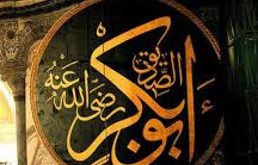 In the sixth year after hijrat, Rasulullah (Sallallahu Alaihi Wasallam) and the Sahaabah (Radhiallahu anhum) set out on the journey from Madina Munawwarah to Makkah Mukarramah with the intention of performing umrah. All the Sahaabah (Radhiallahu Anhum), especially the muhaajireen, earnestly anticipated visiting the holy city of Makkah Mukarramah and once again be blessed with the opportunity of performing tawaaf of the Baitullah. En route to Makkah Mukarramah, Rasulullah (Sallallahu Alaihi Wasallam) received information regarding the Quraysh preparing an army to combat the Muslims in war. Consequently, Rasulullah (Sallallahu Alaihi Wasallam) changed his route until they reached a place known as Hudaybiyyah.
In the sixth year after hijrat, Rasulullah (Sallallahu Alaihi Wasallam) and the Sahaabah (Radhiallahu anhum) set out on the journey from Madina Munawwarah to Makkah Mukarramah with the intention of performing umrah. All the Sahaabah (Radhiallahu Anhum), especially the muhaajireen, earnestly anticipated visiting the holy city of Makkah Mukarramah and once again be blessed with the opportunity of performing tawaaf of the Baitullah. En route to Makkah Mukarramah, Rasulullah (Sallallahu Alaihi Wasallam) received information regarding the Quraysh preparing an army to combat the Muslims in war. Consequently, Rasulullah (Sallallahu Alaihi Wasallam) changed his route until they reached a place known as Hudaybiyyah.
After many envoys of the Quraysh met Rasulullah (Sallallahu Alaihi Wasallam) at Hudaybiyyah and a chain of events ensued, finally the Quraysh agreed to enter into a peace treaty with Rasulullah (Sallallahu Alaihi Wasallam) and the Sahaabah (Radhiallahu Anhum), provided that Rasulullah (Sallallahu Alaihi Wasallam) and the Sahaabah adhere to all their conditions. This treaty was famously known as the treaty of Hudaybiyyah. One of the conditions of the treaty was that the Muslims had to return to Madina Munawwarah without performing Umrah that year. Also, there were many other clauses enlisted in the treaty which were unjust and partial.
In the broader interests of Islam and due to the wahy (revelation) received from Allah Ta’ala, Rasulullah (Sallallahu Alaihi Wasallam) relented to every condition laid down by the Quraysh. Viewing the oppression and tyranny from the side of the Quraysh, Hadhrat Umar (Radhiallahu Anhu) could not help but express his displeasure at that juncture. Hence, he presented himself before Rasulullah (Sallallahu Alaihi Wasallam) and posed the following questions:
Hadhrat Umar (Radhiallahu Anhu): O Rasulullah (Sallallahu Alaihi Wasallam), are you not the messenger of Allah Ta’ala?
Rasulullah (Sallallahu Alaihi Wasallam): Yes, indeed I am the messenger of Allah Ta’ala.
Hadhrat Umar (Radhiallahu Anhu): Are we not on the path of truth whilst they are on the path of misguidance?
Rasulullah (Sallallahu Alaihi Wasallam): Certainly, we are on the path of truth.
Hadhrat Umar (Radhiallahu Anhu): If we are on the truth then why are we relenting to their unjust conditions and why are we giving in to all their demands?
Rasulullah (Sallallahu Alaihi Wasallam): O Umar, certainly I am the Rasul and the true messenger of Allah Ta’ala. I will not disobey his commands. He is my helper and supporter.
Hadhrat Umar (Radhiallahu Anhu): O Rasulullah (Sallallahu Alaihi Wasallam), didn’t you inform us that we will be performing tawaaf of the Baitullah?
Rasulullah (Sallallahu Alaihi Wasallam): Yes, I did inform you that we will make tawaaf. However I did not inform you that we will make tawaaf this year.
Hadhrat Umar (Radhiallahu Anhu) thereafter went to Hadhrat Abu Bakr Siddeeq (Radhiallahu Anhu) and the following dialogue ensued:
Hadhrat Umar (Radhiallahu Anhu): O Abu Bakr, is Rasulullah (Sallallahu Alaihi Wasallam) not the messenger of Allah Ta’ala?
Hadhrat Abu Bakr Siddeeq (Radhiallahu Anhu): Yes, indeed he is the messenger of Allah Ta’ala.
Hadhrat Umar (Radhiallahu Anhu): Are we not on the true path whilst they are on the path of misguidance?
Hadhrat Abu Bakr Siddeeq (Radhiallahu Anhu): Certainly, we are on the path of truth.
Hadhrat Umar (Radhiallahu Anhu): If we are on the truth then why are we relenting to their unjust conditions and why are we giving in to all their demands?
Hadhrat Abu Bakr Siddeeq (Radhiallahu Anhu): O Umar, Rasulullah (Sallallahu Alaihi Wasallam) is the messenger of Allah Ta’ala. He will not disobey His commands. Allah Ta’ala is his helper and supporter.
Note: From the above dialogue between Hadhrat Abu Bakr Siddeeq (Radhiallahu Anhu) and Hadhrat Umar Farooq (Radhiallahu Anhu) we observe the close bond between Hadhrat Abu Bakr Siddeeq (Radhiallahu Anhu) and Rasulullah (Sallallahu Alaihi Wasallam), to such an extent that without him being present at the time when Rasulullah (Sallallahu Alaihi Wasallam) answered Hadhrat Umar (Radhiallahu Anhu), and without being informed about their dialogue, his response to the questions posed by Hadhrat Umar (Radhiallahu Anhu) was identical to the response of Rasulullah (Sallallahu Alaihi Wasallam).
Hadhrat Umar (Radhiallahu Anhu) says: “After this incident, I was extremely ashamed at the manner I conducted before Rasulullah (Sallallahu Alaihi Wasallam). As a means of atonement, I performed abundant nafl salaah, observed many optional fasts, distributed large amounts in charity and freed many slaves for the pleasure of Allah Ta’ala.” [1]
[1] فتح الباري، سيرة المصطفى
 Ihyaaud Deen An Effort to Revive Deen in Totality
Ihyaaud Deen An Effort to Revive Deen in Totality


